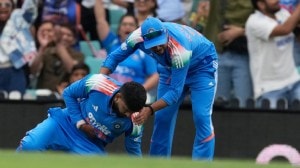Memory of a brother
Today as there are just more and more hollow words voiced for the so-called ‘safety of minorities’ it is essential to highlight t...

Today as there are just more and more hollow words voiced for the so-called ‘safety of minorities’ it is essential to highlight the few individuals who really went beyond mere rhetoric. Such a person was the mild-mannered Raja Jaswant Singh originally hailing from the western town of Mirpur in the erstwhile Jammu and Kashmir State. He lost most of his family members at the hands of the Afghan raiders,including his parents, a brother, two sisters,their husbands and several other close relatives on October 26, 1947. And, yet,inspite of this background Raja Jaswant Singh had the strength of character to reach out to Muslims, strange as it seems in the communally charged times we are living in.
He reached out to me so movingly that it is difficult for me to wipe out my memory of him. About six or seven years ago, I happened to write a critical review of one of his books on Kashmir. Soon after the review was published I saw him at one of the dinner receptions on the Delhi party circuit. I still recollect that my first reaction on spotting him was that he would accost me for being so critical of his book. But I was completely taken aback when he smiled, extended his hand in genuine friendship and said, “ Sister, thank you for pointing out those errors. Your criticism will definitely help me in the second edition of this book. Let’s make sure we keep in touch. I have made you my sister.”
And in keeping with those words he visited my home that year during Raksha Bandhan day with a rakhi and some sweets and a sari. I was more than touched. I tied that thread on his frail wrist, as I was to every year that followed. But this year I will not be able to tie a rakhi on my brother for he died very quietly at the age of 88. Perhaps he will be remembered by others because he held a series of important positions. He was appointed special public prosecutor when Sheikh Abdullah was tried and convicted for sedition and conspiracy. Later he became the advocate general of J&K from 1956 to 1967 and then in 1975 the chief justice of that state, before he became a judge of the supreme court of India. But I will always remember him as a brother who having lost so much in his life did not turn bitter or cynical or vengeful. On the contrary, whenever I tried to bring up the incident of 1947 he would look lost in nostalgia and although his eyes would moisten, he would not say a word. He internalised pain as if to make sure never to inflict pain on others. He reached out with gestures that went far beyond words. When he died a true gentleman passed away.



- 01
- 02
- 03
- 04
- 05




























